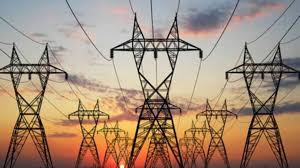ZESA cable theft: Who are the perpetrators?

It is not only the dark streets and safety of her husband when he returns from work in the evening that bothers Nothando Ndlovu.*
She has to make a fire every morning and evening to prepare food for her family.
At times Nothando and her family have no option but to take a cold bath due to a lack of firewood.
She is not alone.
Hundreds of several other Tshabalala residents have gone for several weeks without electricity after thieves stole copper cables, plunging their area into total darkness.
Residents are convinced that Zimbabwe Electricity Supply Authority (ZESA) employees are involved in copper cable thefts.
In Queens Park East, the copper cables were removed in broad daylight by ZESA employees.
“ZESA employees came to Queens Park East about three months ago,” one resident said in an interview.
“They cut off the cables from 15 Sutherland Road to 21 Sutherland Road in broad daylight. They then collected the cables and loaded them into a ZESA truck.”
Zimbabwe Electricity Distribution Company (ZETDC) Hwange District Manager Clayton Sakutukwa did not deny that the power utility’s employees could be involved in the theft of power cables.
“We have since asked our artisans and loss control officers when there’s an incident at night, to make sure both parties are alerted and both parties should go to the scene,” said Sakutukwa at a water service delivery indaba held in Bulawayo recently.
“This is because we have cases where it is alleged that ZESA workers are the ones stealing the copper wires. We are trying to engage the loss control officers and police that if there’s an incident or case where there has been a case of copper theft, the three parties, including the police, should attend so we clear out the air that ZESA guys are stealing.”
Sakutukwa added: “People are stealing copper, taking down our transformers stealing copper wires inside, the problem is very, very rampant to such an extent that on a single night hit they can hit six to seven spots, they hit Burnside, hit Tshabalala, Woodville, taking a toll on us in terms of our service delivery.”
Residents claimed the thieves have electrical engineering knowledge, arguing ‘who else other than ZESA employees would have such knowledge.’
When asked how it was that thieves could easily dismantle ZESA equipment with ease, the utility’s public relations manager, Prisca Utete, said people must not assume that vandals lack technical knowledge on the operations of electricity and energy business.
“We have had regrettable incidents where some thieves and vandals got electrocuted while perpetrating their sinister acts of causing unwarranted disruption of service. Such malcontents would also act in connivance with some unknown cartels that plunder the electricity infrastructure to get copper conductors for the export market,” she told CITE.
“Transformer oil is also drained and is maliciously used as vehicle engine oil that would eventually damage motor vehicles while some of it is used in restaurants for cooking purposes. Such selfish acts also result in endangering human lives and community participation would go a long way in bringing such culprits to book.”
Utete noted as, for technical knowledge, there are numerous institutions in the country that are training or grooming people in engineering courses.
“There are very few (isolated) incidents that involve ZESA employees. The power utility has an existing Code of Conduct that binds the functions and operations of its employees. Should any one of them engage in such acts of theft and vandalism, internal disciplinary measures and procedures are applied and the long arm of the law would also pounce on them,” she said.
“When it comes to theft and vandalism, ZESA has no sacred cows and it remains committed to efficient service delivery to its valued consumers by protecting the integrity of the electricity infrastructure.”
ZESA is reportedly losing over US$2 million annually to theft and vandalism of its infrastructure.
So widespread is the theft and vandalism that in 2019 the power utility acquired industrial-grade enterprise drones to curb the vice which has been likened to economic sabotage.
Utete said ZESA Holdings is always working closely with the police, fellow public utilities and other law enforcement agents in the fight against the vandalism of electricity infrastructure.
At a recent meeting called by Bulawayo Provincial Affairs minister of State Judith Ncube at her offices and Bulawayo City Council and Zimbabwe National Water Authority (Zinwa) officials, ZETDC officials warned that the whole city will be plunged into total darkness if nothing is done.
“It’s a very good recommendation (use of aluminium copper cable) which has to be looked into, promoted and lobbied for. We have suffered more than enough,” Ncube said.
Bulawayo deputy mayor, Mlandu Ncube concurred: “ I think ZESA should be a step ahead from the ones that are taking copper.”
Sakutukwa added “We had a deal with a local manufacturer, CAFCA, the only sole (cable) manufacturer in Zimbabwe. We are trading our copper with aluminium but because the network is so vast we are talking thousands of kilometres that need to be replaced, it’s not something that we can do overnight.
“We started with the outlying areas where we couldn’t reach easily, hoping the network within our suburbs will be protected and have some form of protection from residents that reside there.
“It is work in progress but because of the vast nature of the network, it takes time. We continuously replace aluminium with the copper we get from CAFTA using the deal of barter trade.”
Another worrying development for residents is they are sometimes forced to purchase their own electrical cables to replace stolen ones or if a fault occurs.
Ward 2 Councillor Joyce Ndlovu said ZETDC must compensate residents with free electricity units, especially if they bought their own cables.
In response, Sakutukwa said: “As ZETDC, we will compensate them with electricity units for those clients that would have contributed towards purchasing the aluminium.
“Because our resources are limited financially, we are not able to cater for all the theft that’s happening. If residents can chip in so that their power is restored quickly, we will gladly replace them -compensate them with electricity units. That’s the only deal we have that can serve residents vis a vis the environment we are operating under.”
Utete said the company would continue lobbying for lengthy custodial sentences that would deter thieves, as efforts to safeguard the electricity networks.
Bulawayo Progressive Residents Association Executive Council Member, Ben Moyo suggested the ZETDC must engage the national army to guard its infrastructure like in other countries.
“We met resident associations in South Africa, who told us that in Polokwane, the South African Defense Forces has deployed the army to look after their transformers, perhaps ZESA can liaise with our own,” Moyo summed.
*not her real name





